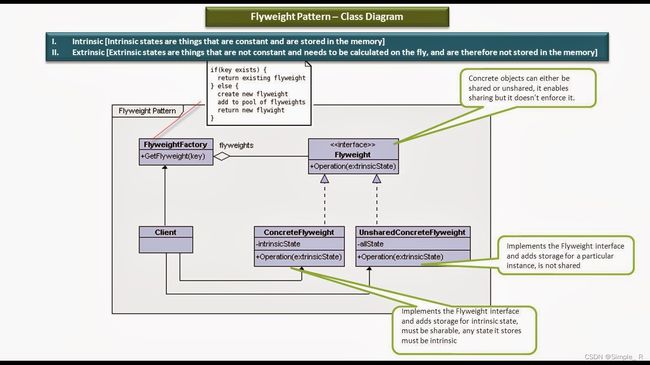- 数据分析师的SQL到底应该掌握到什么程度
流里流气李
sqlmysql数据库
最近有网站统计了“雇主最想要的技术技能”,其中SQL力压Java、Python等,排名第一,成为雇主们最喜爱的技能。SQL简直是数据岗位心照不宣的“宠儿”。随手翻开网上对于数据分析岗位的要求,我们就会发现,熟悉SQL是必须的任职要求。都知道做数据分析需要学习sql,但在学习的过程中还是不太清楚,应该掌握到什么程度。今天给大家讲一下作为数据分析师:不需要学习的部分、基础部分和进阶部分。首先我们先揭穿
- Vue 技术博客:从零开始构建一个 Vue Markdown 编辑器
王大师王文峰
Java基础到框架vue.js编辑器前端
本人详解作者:王文峰,参加过CSDN2020年度博客之星,《Java王大师王天师》公众号:JAVA开发王大师,专注于天道酬勤的Java开发问题中国国学、传统文化和代码爱好者的程序人生,期待你的关注和支持!本人外号:神秘小峯山峯转载说明:务必注明来源(注明:作者:王文峰哦)学习教程(传送门)Vue技术博客:从零开始构建一个VueMarkdown编辑器前言环境准备实现步骤1.引入组件与库2.模板设计3
- 【项目实战】使用Apache Curator分布式锁服务实现分布式锁
本本本添哥
002-进阶开发能力apache分布式
一、ApacheCurator是什么?ApacheCurator是ZooKeeper的一个高级Java客户端库ApacheCurator提供了一系列分布式锁服务,这些服务可以帮助开发人员在分布式系统中实现可靠的同步和协调。这些服务可以根据不同的需求选择使用。二、使用ApacheCurator的注意事项需要注意的是,在使用这些分布式锁服务时,需要正确地配置和使用Curator提供的ZooKeeper
- Matcher group方法
angen2018
javajava
在Java中,`Matcher`类的`group`方法用于捕获由正则表达式匹配的文本。以下是`group`方法的一些常见用法和说明:###基本语法:```javapublicStringgroup()publicStringgroup(intgroup)```-`group()`:返回匹配整个正则表达式的输入字符串。-`group(intgroup)`:返回由正则表达式中的捕获组匹配的输入字符串。
- kafka + flink +mysql 案例
angen2018
javakafkaflink
假设你有两个Kafka主题:user_activities_topic和product_views_topic,并且你希望将user_activities_topic中的数据写入到user_activities表,而将product_views_topic中的数据写入到product_views表。mavenorg.apache.flinkflink-streaming-java_2.121.14
- java.sql.SQLNonTransientConnectionException: Public Key Retrieval is not allowed
二十七剑
java开发语言
只需要在url:jdbc:mysql://xxx?serverTimezone=Asia/Shanghai&useUnicode=true&characterEncoding=utf8&useSSL=false后面加上&allowPublicKeyRetrieval=true即url:jdbc:mysql://xxx?serverTimezone=Asia/Shanghai&useUnicode=
- 架构师之路——设计模式篇(总览)
周努力.
设计模式java
1.前言在1994年,由ErichGamma、RichardHelm、RalphJohnson和JohnVlissides四人合著出版了一本名为DesignPatterns-ElementsofReusableObject-OrientedSoftware(中文译名:设计模式-可复用的面向对象软件元素)的书,该书首次提到了软件开发中设计模式的概念。设计模式——这四个字不仅仅是一个通用技能的名称,更
- Java必知必会系列:Web框架与Spring MVC
AI天才研究院
Java实战编程实践大数据人工智能语言模型JavaPython架构设计
作者:禅与计算机程序设计艺术1.背景介绍在企业级应用开发中,采用前后端分离模式和RESTfulAPI风格的Web服务架构逐渐成为主流。基于这些技术,前端可以采用JavaScript、HTML、CSS等多种技术进行开发,而后端则可以通过各种Web框架构建出高性能、可扩展性强的应用系统。在本章节中,我将介绍Java最具代表性的Web框架SpringMVC,并结合实际案例,展示如何利用SpringMVC
- Java直通车系列20【Spring MVC】(拦截器)
浪九天
Java直通车javaspringmvc开发语言
目录拦截器概述拦截器的工作原理拦截器的使用步骤拦截器接口方法解释场景示例1.创建拦截器类2.配置拦截器3.创建控制器4.测试拦截器其他常见场景拦截器概述在SpringMVC中,拦截器(Interceptor)是一种可以在请求处理的不同阶段进行预处理和后处理的组件。它类似于Servlet中的过滤器(Filter),但拦截器是SpringMVC框架特有的,主要用于对控制器方法的调用进行拦截和处理。拦截
- Java直通车系列14【Spring MVC】(深入学习 Controller 编写)
浪九天
Java直通车javaspring后端
目录基本概念编写Controller的步骤和要点1.定义Controller类2.映射请求3.处理请求参数4.调用业务逻辑5.返回响应场景示例1.简单的HelloWorld示例2.处理路径变量和请求参数3.处理表单提交4.处理JSON数据5.异常处理基本概念Controller是SpringMVC架构中的核心组件之一,它负责接收客户端的请求,调用相应的业务逻辑进行处理,并将处理结果返回给客户端。通
- Java直通车系列15【Spring MVC】(ModelAndView 使用)
浪九天
Java直通车javaspring后端
目录1.ModelAndView概述2.ModelAndView的主要属性和方法主要属性主要方法3.场景示例示例1:简单的ModelAndView使用示例2:使用ModelAndView处理列表数据示例3:使用ModelAndView处理异常情况1.ModelAndView概述在SpringMVC中,ModelAndView是一个非常重要的类,它用于封装模型数据和视图信息,是控制器(Control
- 软件构造——接口
sbj001
java编程语言
本章的主要内容是接口,由于我们学习的软件构造是用Java语言编写的,所以我们这里的接口是指Java语言的接口。一、接口1.定义:接口(软件类接口)是指对协定进行定义的引用类型。其他类型实现接口,以保证它们支持某些操作。接口指定必须由类提供的成员或实现它的其他接口。与类相似,接口可以包含方法、属性、索引器和事件作为成员。而在Java中:Java里面由于不允许多重继承,所以如果要实现多个类的功能,则可
- 作为 Java 程序员连 Redis 都不会?阿里架构师带你深入“解剖”Redis
倾听铃的声
后端redisjava数据库网络缓存
前言作为Java开发程序员【Redis】是你必须要掌握的知识Redis是互联网技术领域使用最为广泛的存储中间件,它是「RemoteDictionaryService」的首字母缩写,也就是「远程字典服务」。Redis以其超高的性能、完美的文档、简洁易懂的源码和丰富的客户端库支持在开源中间件领域广受好评。国内外很多大型互联网公司都在使用Redis,比如Twitter、YouPorn、暴雪娱乐、Gith
- JavaWeb(8) 正则表达式
Theodore_1022
mysql数据库
目录一、什么是正则表达式?1.定义2.语法3.常用的写法(1)修饰符(2)方括号(3)元字符(4)量词(5)RegExp对象方法(6)支持正则的String的方法二、正则表达式举例1.验证2.匹配3.替换4.全文查找5.忽略大小写6.元字符使用7.字符集合的使用8.常用正则表达式总结一、什么是正则表达式?1.定义正则表达式是描述字符模式的对象。正则表达式用于对字符串模式匹配及检索替换,是对字符串执
- 异步 vs 同步:深入理解高并发系统的核心设计抉择
以恒1
java开发语言
Java异步vs同步:深入理解高并发系统的核心设计抉择为什么你的接口响应越来越慢?在一次电商大促中,某平台的订单接口因同步阻塞导致超时率飙升,最终引发雪崩。而另一平台通过异步化改造,轻松扛住每秒10万订单。同步与异步的抉择,直接决定了系统的生死线。本文将从原理到实践,揭示异步编程的底层逻辑、常见陷阱与终极解决方案。一次餐厅点餐引发的技术思考某个周末,我在一家网红餐厅目睹了两种截然不同的服务模式:同
- Java知识点——IO流
小布不吃竹
java
目录一、IO流基础概念二、常见的IO流类三、字符流1.字符输入流(Reader)与字符输出流(Writer)2.常用实现类3.实例四、字节流1.字节输入流(InputStream)与字节输出流(OutputStream)2.实例一、IO流基础概念在Java中,IO流被抽象为一系列类和接口,主要分为两大类:输入流(InputStream/Reader)和输出流(OutputStream/Writer
- Tomcat服务器
小布不吃竹
tomcat服务器java
目录一、bin目录二、conf目录三、lib目录四、logs目录五、temp目录六、webapps目录七、work目录Tomcat,作为JavaWeb应用的首选容器,其安装包内包含了一系列精心设计的目录和文件,这些组件共同协作,确保了Tomcat的稳定运行和高效管理。以下是Tomcat安装包目录结构的详细解析,以及各目录的功能扩展说明。一、bin目录位置:Tomcat安装包的根目录下功能:存放To
- 领域驱动设计(DDD)与CQRS架构实践:Eric Evans DDDSample项目深入分析
红钻头机
本文还有配套的精品资源,点击获取简介:本文介绍了一个由领域驱动设计(DDD)的先驱EricEvans创建的示例项目DDDSample。该项目通过将复杂业务逻辑映射为领域模型,展示了DDD在实际软件开发中的应用。项目还融合了命令查询职责分离(CQRS)架构和领域特定语言(DSL),并采用Java语言实现,以提升软件性能和可维护性。文档还包括了如何使用Git和GitHub等工具管理项目的源代码。通过本
- 【spring】微服务架构中的VO命名
等风来不如迎风去
网络服务入门与实战架构spring微服务
Vo的后缀,代表的是“ValueObject”,带有Vo后缀的命名习惯虽然不是SpringBoot的专有命名约定,但它符合Java开发中面向对象编程的规范,特别是在分层架构和面向服务的系统中,被广泛用于描述数据传输对象(DTO),帮助系统之间有效传递数据,并提高系统的模块化与可维护性。命名约定-为什么名称以Vo结尾?在类名中使用Vo的后缀,代表的是“ValueObject”,是一种常见的命名约定,
- Java开发中的vo,dto,po
KNeeg_
java开发语言
1.DTO(DataTransferObject)-数据传输对象定义:DTO是用于传输数据的对象,通常在服务层与表现层之间传递数据。用途:DTO通常用于减少网络传输的数据量,因为它只包含需要传递的数据,而不包含业务逻辑。DTO常用于不同服务或系统之间的数据交换。特点:包含的数据是从其他对象(通常是PO)中提取出来的。仅用于传输,不包含业务逻辑。可能对数据进行一定的裁剪或合并,以适应不同的传输需求。
- 【Java代码审计 | 第十三篇】XXE漏洞成因及防范
秋说
Java代码审计javaXXE
未经许可,不得转载。文章目录XXE漏洞成因解析XML的Java方法DocumentBuilder(原生,可回显)SAXReader(DOM4J,第三方库)SAXBuilder(JDOM,第三方库)SAXParserFactory(原生,不可回显)XMLReaderFactoryDigester(ApacheCommonsDigester)支持XInclude的DocumentBuilderSAXP
- javascript正则
努力的程序员30*15k
javascript正则表达式开发语言
@TOC引言无意中从网上查找到一篇关于正则表达式的好文章,就进行了分享给大家,希望对大家有帮助。亲爱的读者朋友,如果你点开了这篇文章,说明你对正则很感兴趣。想必你也了解正则的重要性,在我看来正则表达式是衡量程序员水平的一个侧面标准。关于正则表达式的教程,网上也有很多,相信你也看了一些。与之不同的是,本文的目的是希望所有人认真读完,都有实质性的提高。本文内容共有七章,用JavaScript语言完整地
- 关于JavaScript(你所不知道的小秘密)
Taptaq
前端javascript前端
主流浏览器的内核IE:tridentChrome:webkit/blinkfirefox:GeckoOpera:最初是presto,现在用的是blinkSafari:webkit引入JS的方式页面内嵌标签(可在head内或body内)外部引入(常用方法)JS基本语法变量:变量声明:声明,赋值分解。单一var。(vara=100)命名规则:变量名必须以英文字母,*,$开头*变量名可以包括英文字母,,
- 给求职者的建议:软件工程师
追寻向上
pythonjavac语言软件工程
一、编程基础:构建核心能力语言选择与学习首推Python:语法简洁,适合入门。推荐书籍《Python编程:从入门到实践》,重点掌握列表推导、装饰器、文件操作。Java/C++进阶:理解内存管理(如JVM垃圾回收)、多线程编程(synchronized关键字)。推荐《Java核心技术卷Ⅰ》。辅助语言:JavaScript(必学)、Go或Rust(扩展视野)。数据结构与算法基础必刷:数组、链表、哈希表
- PyScript 与 JavaScript
Q shen
javascript开发语言ecmascript
大家好。请不要将这篇文章视为神圣的真理。这是我个人的看法。JS如果您有超过两年的前端应用程序开发经验,您无疑已经知道一些尝试替换奇怪、丑陋的JavaScript的失败尝试。尽管已经尝试替代或避免使用JavaScript,但JS仍然是一个强大的对手!JavaScript在网络上无处不在。它是最常用的编程语言,97.7%的网站使用JavaScript作为客户端编程语言。脚本近年来,Python的使用大
- Java多线程与高并发专题——什么是阻塞队列?
黄雪超
技术基础java开发语言并发编程
引入阻塞队列(BlockingQueue)是一种线程安全的队列数据结构,它的主要特点是:线程安全:多个线程可以安全地同时访问队列。阻塞操作:当队列为空时,从队列中获取元素的操作会被阻塞,直到队列中有元素可用;当队列为满时,向队列中插入元素的操作会被阻塞,直到队列有空间可用。BlockingQueueBlockingQueue继承了Queue接口,是队列的一种。Queue和BlockingQueue
- 2025年毕设ssm网上超市论文+源码
SSM毕设程序源码JAVA
课程设计
本系统(程序+源码)带文档lw万字以上文末可获取一份本项目的java源码和数据库参考。系统程序文件列表开题报告内容选题背景关于网上超市系统的研究,现有研究主要集中在电子商务平台的设计与开发、供应链管理、以及用户行为分析等领域。尽管这些研究已经取得了一定的成果,但专门针对基于SSM(Spring、SpringMVC、MyBatis)框架的网上超市系统的研究仍相对较少。随着电子商务的蓬勃发展,网上超市
- pyscript的用法
新时代_打工人
pythonpython开发语言前端框架
PyScript核心特性Pythoninthebrowser:启用drop-incontent、外部文件托管(基于Pyodide项目),以及不依赖服务器端配置的应用程序托管。Python生态:提供流行的Python和科学计算软件包(例如numpy,pandas,scikit-learn等)。PythonwithJavaScript:在Python和JavaScript对象和命名空间之间进行双向通信
- JavaScript学习笔记一
跨界科技汇
前端javascript学习笔记
web三大标准:HTML(结构)+CSS(样式)+JavaScript(行为)JavaScript的作用:动态效果+数据交互编程语言编程让计算机为解决某个问题而使用某种程序设计语言编写程序代码,最终得到结果是什么?世界上最流行的语言之一,是一种运行在客户端的脚本语言脚本语言不需要编译,运行过程中由**js解析器(js引擎)**逐行来进行解释并执行现在也可以基于Node.js技术来进行服务器端编程作
- 大白话JavaScript实现一个函数,将字符串中的每个单词首字母大写。
IT木昜
大白话前端高频面试题开发语言前端javascriptecmascript
大白话JavaScript实现一个函数,将字符串中的每个单词首字母大写。答题思路理解需求:要写一个函数,它能接收一个字符串,然后把这个字符串里每个单词的第一个字母变成大写。分解步骤拆分单词:一般单词之间是用空格隔开的,所以得把输入的字符串按照空格拆分成一个个单词,存到一个数组里。处理首字母:对拆分好的每个单词,把它的第一个字母变成大写。重新组合:把处理好的单词再用空格连接起来,变回一个完整的字符串
- html页面js获取参数值
0624chenhong
html
1.js获取参数值js
function GetQueryString(name)
{
var reg = new RegExp("(^|&)"+ name +"=([^&]*)(&|$)");
var r = windo
- MongoDB 在多线程高并发下的问题
BigCat2013
mongodbDB高并发重复数据
最近项目用到 MongoDB , 主要是一些读取数据及改状态位的操作. 因为是结合了最近流行的 Storm进行大数据的分析处理,并将分析结果插入Vertica数据库,所以在多线程高并发的情境下, 会发现 Vertica 数据库中有部分重复的数据. 这到底是什么原因导致的呢?笔者开始也是一筹莫 展,重复去看 MongoDB 的 API , 终于有了新发现 :
com.mongodb.DB 这个类有
- c++ 用类模版实现链表(c++语言程序设计第四版示例代码)
CrazyMizzz
数据结构C++
#include<iostream>
#include<cassert>
using namespace std;
template<class T>
class Node
{
private:
Node<T> * next;
public:
T data;
- 最近情况
麦田的设计者
感慨考试生活
在五月黄梅天的岁月里,一年两次的软考又要开始了。到目前为止,我已经考了多达三次的软考,最后的结果就是通过了初级考试(程序员)。人啊,就是不满足,考了初级就希望考中级,于是,这学期我就报考了中级,明天就要考试。感觉机会不大,期待奇迹发生吧。这个学期忙于练车,写项目,反正最后是一团糟。后天还要考试科目二。这个星期真的是很艰难的一周,希望能快点度过。
- linux系统中用pkill踢出在线登录用户
被触发
linux
由于linux服务器允许多用户登录,公司很多人知道密码,工作造成一定的障碍所以需要有时踢出指定的用户
1/#who 查出当前有那些终端登录(用 w 命令更详细)
# who
root pts/0 2010-10-28 09:36 (192
- 仿QQ聊天第二版
肆无忌惮_
qq
在第一版之上的改进内容:
第一版链接:
http://479001499.iteye.com/admin/blogs/2100893
用map存起来号码对应的聊天窗口对象,解决私聊的时候所有消息发到一个窗口的问题.
增加ViewInfo类,这个是信息预览的窗口,如果是自己的信息,则可以进行编辑.
信息修改后上传至服务器再告诉所有用户,自己的窗口
- java读取配置文件
知了ing
1,java读取.properties配置文件
InputStream in;
try {
in = test.class.getClassLoader().getResourceAsStream("config/ipnetOracle.properties");//配置文件的路径
Properties p = new Properties()
- __attribute__ 你知多少?
矮蛋蛋
C++gcc
原文地址:
http://www.cnblogs.com/astwish/p/3460618.html
GNU C 的一大特色就是__attribute__ 机制。__attribute__ 可以设置函数属性(Function Attribute )、变量属性(Variable Attribute )和类型属性(Type Attribute )。
__attribute__ 书写特征是:
- jsoup使用笔记
alleni123
java爬虫JSoup
<dependency>
<groupId>org.jsoup</groupId>
<artifactId>jsoup</artifactId>
<version>1.7.3</version>
</dependency>
2014/08/28
今天遇到这种形式,
- JAVA中的集合 Collectio 和Map的简单使用及方法
百合不是茶
listmapset
List ,set ,map的使用方法和区别
java容器类类库的用途是保存对象,并将其分为两个概念:
Collection集合:一个独立的序列,这些序列都服从一条或多条规则;List必须按顺序保存元素 ,set不能重复元素;Queue按照排队规则来确定对象产生的顺序(通常与他们被插入的
- 杀LINUX的JOB进程
bijian1013
linuxunix
今天发现数据库一个JOB一直在执行,都执行了好几个小时还在执行,所以想办法给删除掉
系统环境:
ORACLE 10G
Linux操作系统
操作步骤如下:
第一步.查询出来那个job在运行,找个对应的SID字段
select * from dba_jobs_running--找到job对应的sid
&n
- Spring AOP详解
bijian1013
javaspringAOP
最近项目中遇到了以下几点需求,仔细思考之后,觉得采用AOP来解决。一方面是为了以更加灵活的方式来解决问题,另一方面是借此机会深入学习Spring AOP相关的内容。例如,以下需求不用AOP肯定也能解决,至于是否牵强附会,仁者见仁智者见智。
1.对部分函数的调用进行日志记录,用于观察特定问题在运行过程中的函数调用
- [Gson六]Gson类型适配器(TypeAdapter)
bit1129
Adapter
TypeAdapter的使用动机
Gson在序列化和反序列化时,默认情况下,是按照POJO类的字段属性名和JSON串键进行一一映射匹配,然后把JSON串的键对应的值转换成POJO相同字段对应的值,反之亦然,在这个过程中有一个JSON串Key对应的Value和对象之间如何转换(序列化/反序列化)的问题。
以Date为例,在序列化和反序列化时,Gson默认使用java.
- 【spark八十七】给定Driver Program, 如何判断哪些代码在Driver运行,哪些代码在Worker上执行
bit1129
driver
Driver Program是用户编写的提交给Spark集群执行的application,它包含两部分
作为驱动: Driver与Master、Worker协作完成application进程的启动、DAG划分、计算任务封装、计算任务分发到各个计算节点(Worker)、计算资源的分配等。
计算逻辑本身,当计算任务在Worker执行时,执行计算逻辑完成application的计算任务
- nginx 经验总结
ronin47
nginx 总结
深感nginx的强大,只学了皮毛,把学下的记录。
获取Header 信息,一般是以$http_XX(XX是小写)
获取body,通过接口,再展开,根据K取V
获取uri,以$arg_XX
&n
- 轩辕互动-1.求三个整数中第二大的数2.整型数组的平衡点
bylijinnan
数组
import java.util.ArrayList;
import java.util.Arrays;
import java.util.List;
public class ExoWeb {
public static void main(String[] args) {
ExoWeb ew=new ExoWeb();
System.out.pri
- Netty源码学习-Java-NIO-Reactor
bylijinnan
java多线程netty
Netty里面采用了NIO-based Reactor Pattern
了解这个模式对学习Netty非常有帮助
参考以下两篇文章:
http://jeewanthad.blogspot.com/2013/02/reactor-pattern-explained-part-1.html
http://gee.cs.oswego.edu/dl/cpjslides/nio.pdf
- AOP通俗理解
cngolon
springAOP
1.我所知道的aop 初看aop,上来就是一大堆术语,而且还有个拉风的名字,面向切面编程,都说是OOP的一种有益补充等等。一下子让你不知所措,心想着:怪不得很多人都和 我说aop多难多难。当我看进去以后,我才发现:它就是一些java基础上的朴实无华的应用,包括ioc,包括许许多多这样的名词,都是万变不离其宗而 已。 2.为什么用aop&nb
- cursor variable 实例
ctrain
variable
create or replace procedure proc_test01
as
type emp_row is record(
empno emp.empno%type,
ename emp.ename%type,
job emp.job%type,
mgr emp.mgr%type,
hiberdate emp.hiredate%type,
sal emp.sal%t
- shell报bash: service: command not found解决方法
daizj
linuxshellservicejps
今天在执行一个脚本时,本来是想在脚本中启动hdfs和hive等程序,可以在执行到service hive-server start等启动服务的命令时会报错,最终解决方法记录一下:
脚本报错如下:
./olap_quick_intall.sh: line 57: service: command not found
./olap_quick_intall.sh: line 59
- 40个迹象表明你还是PHP菜鸟
dcj3sjt126com
设计模式PHP正则表达式oop
你是PHP菜鸟,如果你:1. 不会利用如phpDoc 这样的工具来恰当地注释你的代码2. 对优秀的集成开发环境如Zend Studio 或Eclipse PDT 视而不见3. 从未用过任何形式的版本控制系统,如Subclipse4. 不采用某种编码与命名标准 ,以及通用约定,不能在项目开发周期里贯彻落实5. 不使用统一开发方式6. 不转换(或)也不验证某些输入或SQL查询串(译注:参考PHP相关函
- Android逐帧动画的实现
dcj3sjt126com
android
一、代码实现:
private ImageView iv;
private AnimationDrawable ad;
@Override
protected void onCreate(Bundle savedInstanceState)
{
super.onCreate(savedInstanceState);
setContentView(R.layout
- java远程调用linux的命令或者脚本
eksliang
linuxganymed-ssh2
转载请出自出处:
http://eksliang.iteye.com/blog/2105862
Java通过SSH2协议执行远程Shell脚本(ganymed-ssh2-build210.jar)
使用步骤如下:
1.导包
官网下载:
http://www.ganymed.ethz.ch/ssh2/
ma
- adb端口被占用问题
gqdy365
adb
最近重新安装的电脑,配置了新环境,老是出现:
adb server is out of date. killing...
ADB server didn't ACK
* failed to start daemon *
百度了一下,说是端口被占用,我开个eclipse,然后打开cmd,就提示这个,很烦人。
一个比较彻底的解决办法就是修改
- ASP.NET使用FileUpload上传文件
hvt
.netC#hovertreeasp.netwebform
前台代码:
<asp:FileUpload ID="fuKeleyi" runat="server" />
<asp:Button ID="BtnUp" runat="server" onclick="BtnUp_Click" Text="上 传" />
- 代码之谜(四)- 浮点数(从惊讶到思考)
justjavac
浮点数精度代码之谜IEEE
在『代码之谜』系列的前几篇文章中,很多次出现了浮点数。 浮点数在很多编程语言中被称为简单数据类型,其实,浮点数比起那些复杂数据类型(比如字符串)来说, 一点都不简单。
单单是说明 IEEE浮点数 就可以写一本书了,我将用几篇博文来简单的说说我所理解的浮点数,算是抛砖引玉吧。 一次面试
记得多年前我招聘 Java 程序员时的一次关于浮点数、二分法、编码的面试, 多年以后,他已经称为了一名很出色的
- 数据结构随记_1
lx.asymmetric
数据结构笔记
第一章
1.数据结构包括数据的
逻辑结构、数据的物理/存储结构和数据的逻辑关系这三个方面的内容。 2.数据的存储结构可用四种基本的存储方法表示,它们分别是
顺序存储、链式存储 、索引存储 和 散列存储。 3.数据运算最常用的有五种,分别是
查找/检索、排序、插入、删除、修改。 4.算法主要有以下五个特性:
输入、输出、可行性、确定性和有穷性。 5.算法分析的
- linux的会话和进程组
网络接口
linux
会话: 一个或多个进程组。起于用户登录,终止于用户退出。此期间所有进程都属于这个会话期。会话首进程:调用setsid创建会话的进程1.规定组长进程不能调用setsid,因为调用setsid后,调用进程会成为新的进程组的组长进程.如何保证? 先调用fork,然后终止父进程,此时由于子进程的进程组ID为父进程的进程组ID,而子进程的ID是重新分配的,所以保证子进程不会是进程组长,从而子进程可以调用se
- 二维数组 元素的连续求解
1140566087
二维数组ACM
import java.util.HashMap;
public class Title {
public static void main(String[] args){
f();
}
// 二位数组的应用
//12、二维数组中,哪一行或哪一列的连续存放的0的个数最多,是几个0。注意,是“连续”。
public static void f(){
- 也谈什么时候Java比C++快
windshome
javaC++
刚打开iteye就看到这个标题“Java什么时候比C++快”,觉得很好笑。
你要比,就比同等水平的基础上的相比,笨蛋写得C代码和C++代码,去和高手写的Java代码比效率,有什么意义呢?
我是写密码算法的,深刻知道算法C和C++实现和Java实现之间的效率差,甚至也比对过C代码和汇编代码的效率差,计算机是个死的东西,再怎么优化,Java也就是和C
